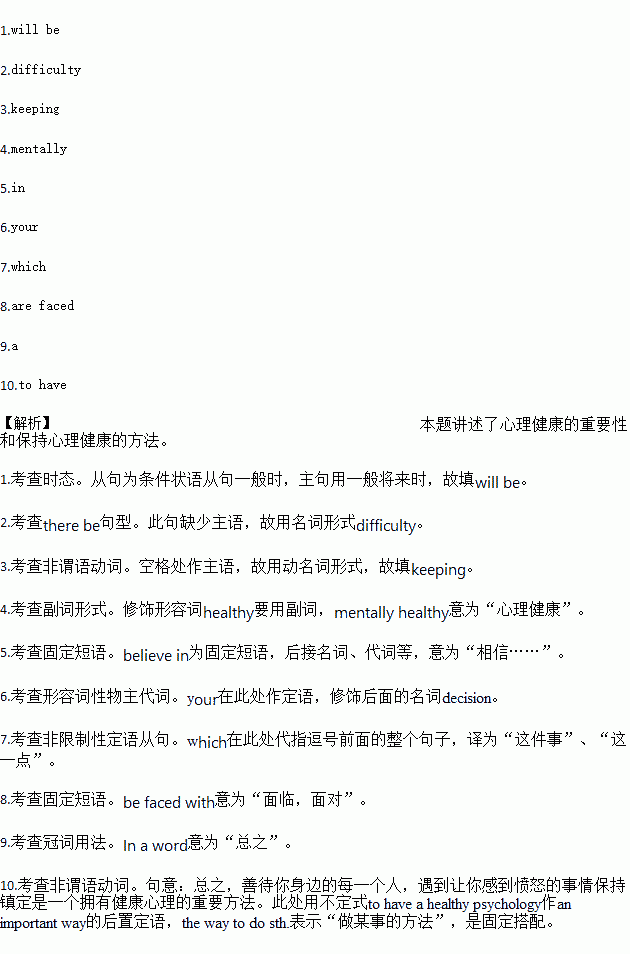题目内容
If you are always in a good mood, everything 1.(be) more beautiful. If you are always optimistic, there will be no 2. (difficult) that cannot be overcome. Otherwise, you may feel sad and upset in your life. So 3.(keep) a healthy mind is necessary. There are at least two ways to be 4. (mental) healthy. First, believe 5. yourself when you have to decide something, and have enough courage to face any results of 6. (you) own decision. Second, you should develop the ability of self-control, 7. makes you calm down when you 8. (face) with something annoying. In 9. word, being kind to everyone around you and keeping calm when you feel angry is an important way 10. (have) a healthy psychology.
练习册系列答案
 天天向上一本好卷系列答案
天天向上一本好卷系列答案 小学生10分钟应用题系列答案
小学生10分钟应用题系列答案
相关题目

